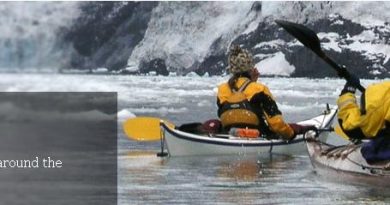What happens when you don't check your keys in the Arctic….
Monday, January 24 , 2011
Qikiqtarjuaq, Nunavut
Weather: cold, dark and windy
We safely arrived in Qikiqtarjuaq today. At 5:45pm I decided to go out and buy a calling card at the local co-op before it closed. I figured it would take 10 mintues or so and I’d be back at the hotel by the time they started serving dinner at 6pm.
I got my card but as I made my way back to the hotel, the wind started picking up and the cold was so bitter my teeth hurt.
When I reached the hotel ramp, I walked up to the door and put my key in the lock. But it wouldn’t fit. I took off my mittens and fiddled with the keys some more but the metal was so cold it felt like it was burning through my undergloves. I tried a second key the hotel had given me but that didn’t work either. I banged on the door for a while but there was no answer.
I walked around the hotel trying the other doors to see if there was one open. None of them were and all the windows were dark.
Back at the front of the hotel, I saw that the lights in the dinning room were on and guests were happily chatting as their supper was served.
I tried to walk up a ramp on that side of the building but I was soon thigh deep in snow and couldn’t get anywhere near the dinning room windows.
I started making snowballs and pitching them at the windows to try to get peoples attention. But again, nothing worked. The snow was so heavy and thick the snowballs disintegrated by the time they hit the windows.
I think the only thing worse than being locked out of one’s hotel in the Arctic in the thick of January, it’s being locked out of one’s hotel room in the Arctic in the middle of January while one is watching one’s collegues (yes I’m talking about you Jean and Alfonse!) warm and cozy inside while chowing down on plates heaving with hot food.
I tried jumping up and down and yelling; all in my giant red parka. But not even that got the diners attention.
I’d been up since 5am and now I was cold, tired hungry and frustrated. Discouraged, I figured the only option left was to walk back up the street and start knocking on random houses to see if they could call someone to come open the hotel front door for me.
But just as I turned away I saw a shadow moving in one of the darkened windows. I heaved my remaining fistfulls of snow at the window. Seconds later a face pressed against the glass. It was the hotel manger. He came round to the front door and let me in, scolding me about not knowing how to use the hotel keys. He came outside and started to show me how to do it. But ooops. It turns out I had been given the wrong keys when I checked in!!!!
He changed the set and apologized. When I finally walked into the dinning room I was cold, wet and miserable but I had learned my lesson. Never, never EVER go out of an Arctic hotel without checking that ALL the keys work first.
Amen to that.


